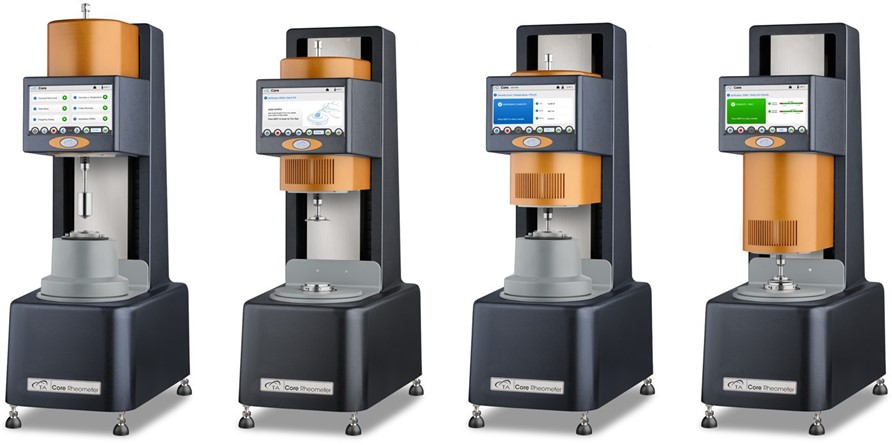How to Accelerate Successful Product Development with Rheology
Introducing a new Core rheology solution
Morgan Ulrich | Sarah Cotts
October 10, 2024
Rheology is a notoriously complex field, combining mathematics and physics to characterize materials. For inexperienced users, rheology can seem like a massive challenge. Luckily, new technology simplifies rheology down to its core so you can get essential measurements without difficult training, measurements, or calculations.

- Optimizing processing conditions
- Predicting product performance
- Designing delivery methods and storage conditions
- Assessing additives and fillers’ impact
For example, rheology can answer: How do different battery slurry formulations affect the coating process and electrode quality? Do generic pharmaceutical lotions have the right flow for spreading and dispensing like the original product? Will low fat food products meet consumer expectations? Rheology is critical for optimizing various products during formulation, material selection, processing, and final use.
A New Rheometer Everyone Can Use
The new Discovery Core Rheometer provides essential rheological insights, which go beyond simple viscosity measurements. Viscometers characterize the viscosity of a fluid at a single shear rate, but rheometers measure how the liquid flows in response to an applied stress over a wide range of shear rate. Rheometers therefore measure properties viscometers lack, including flowability, yield stress, structure and stability.
The Discovery Core Rheometer is the first system to combine wide-ranging measurements of viscosity and viscoelasticity with streamlined, walk-up usability. The Core Rheometer provides the exceptional torque sensitivity needed to measure wide ranges of viscosity under process-relevant shear rates. Users can confidently predict their material’s flow, dispensing, mixing, and storage with completely guided testing and instant results.
Key Industry Applications
The Discovery Core Rheometer is ideal for labs involved in product development, analytical support, and quality control. The following industries are examples of current rheology applications.
Batteries
Battery slurry processing is one of the key steps in battery manufacturing that can significantly influence battery performance. Differences in slurry formulation can have a big impact on a slurry’s stability and flowability. Slurry rheology offers key insights into how slurry formulations affect the coating process and ultimate electrode quality. Battery researchers have adopted slurry rheology into their workflows for optimizing formulations and enhancing electrode manufacturing.
Pharmaceuticals
Topical, oral, and injectable pharmaceuticals require rheological evaluation for optimal formulation, processing, storage, and delivery. For example, generic equivalents of topical pharmaceuticals require rheological measurements for regulatory approvals. High concentration antibody products (HCAPs) are also tested with rheometers to ensure proper stability and behavior.
Paints and Coatings
Rheology has become a very important method to characterize paints and coatings. Rheology provides not only information about the flow of the material during processing but also about the performance during application and of the final coating.
Food Products
Predicting consumer preferences no longer requires costly panel evaluation when you have a rheometer. Developing new products, including reduced fat or plant-based formulations, is streamlined when a rheometer can predict results and measure ingredients’ impact on the food’s texture.
Personal Care Products
From lotions and lipstick to conditioner and concealer, any product a consumer puts on their body must apply evenly and maintain its stability during storage and dispensing. For example, high-quality hair conditioner exhibits very different flow behavior from low-quality brands that can be quantified using rheology. Formulators can use rheological data to predict and meet consumer preferences.
A Rheology Solution for All Experience Levels
The Discovery Core Rheometer makes it easy for users of all experience levels to measure key viscoelastic material properties. Routine measurements are performed entirely at the touch screen with built-in guidance, instruction, illustration and validation at every step. Built for user-friendly testing that delivers reliable results, the Discovery Core Rheometer brings core rheology insights into your lab to enhance your workflow.
Contact TA Instruments for expert guidance in finding the rheometer that is right for your lab.

